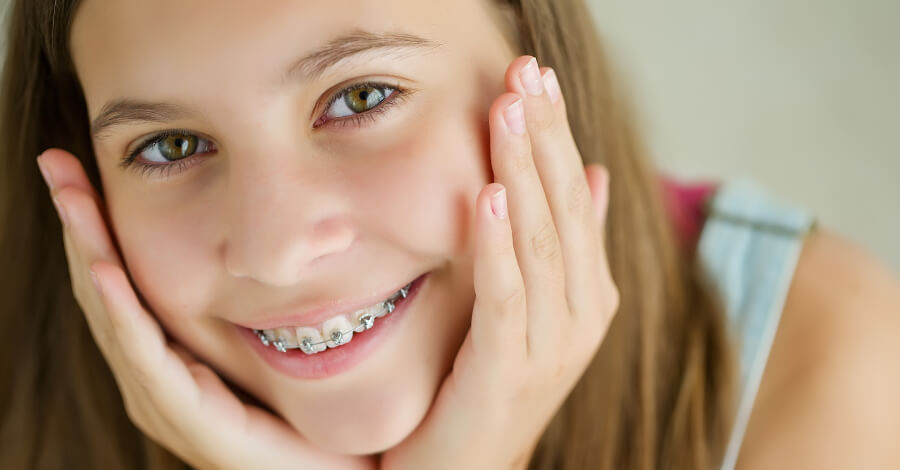Find Relief for Painful Crossbite Symptoms
Do you have a misaligned bite that affects your smile and ability to chew comfortably? You’re not alone. Crossbites are a common dental issue, but the good news is they can be effectively treated!
At the Centre for Invisible Braces, our team can provide you with skilled orthodontic care and service to help you achieve your smile and oral health goals. Dr. Stephen Grussmark is a Diamond Plus Invisalign Provider in Miami, FL, with extensive experience treating dental crossbite cases.
Call our Miami office at (305) 441-1200 today to schedule your orthodontic consultation with Dr. Grussmark.
What Is a Crossbite?
A crossbite is a misalignment of the teeth where one or more upper teeth bite inside the lower teeth instead of meeting them slightly edge-to-edge. This misalignment can occur in the front (anterior) or back (posterior), affecting a single tooth or a group of multiple teeth. Crossbite is a type of malocclusion, a general term for misaligned teeth.


Symptoms of Crossbites
Crossbites can sometimes go unnoticed, particularly in mild cases. However, several signs and symptoms may indicate a crossbite, including:
- Uneven Tooth Wear: Teeth that don’t meet properly can experience excessive wear on certain surfaces.
- Difficulty Chewing: The misaligned bite can make it challenging to chew food effectively.
- Jaw Pain or Discomfort: Crossbites can put undue stress on the jaw joints, leading to pain or tenderness.
- Speech Impediments: In some cases, a crossbite may affect speech patterns.
- Facial Asymmetry: Severe crossbites can sometimes cause a noticeable difference in facial appearance.
If you suspect you or your child may have a crossbite, schedule a consultation with an orthodontist like Dr. Stephen Grussmark for a proper diagnosis and treatment plan. Early intervention can help prevent complications and achieve a healthier, more functional smile.
Crossbite Treatment Options
Invisalign
At the Centre for Invisible Braces, Dr. Grussmark utilizes Invisalign as a preferred method for treating many crossbite cases. Invisalign uses a series of clear, removable aligners that gently and gradually move teeth into their correct positions. Invisalign offers several advantages, including discretion, comfort, and the ability to maintain good oral hygiene.
Traditional Braces
Traditional metal braces remain reliable for correcting crossbites, particularly in complex cases. Braces use a system of brackets, wires, and elastics to apply controlled pressure on teeth, effectively moving them into alignment.
Palatal Expanders
For some patients, especially those with a narrow upper jaw contributing to the crossbite, palatal expanders may be used. These appliances gently widen the upper jaw to create space for proper tooth alignment. Palatal mouth expanders can be used in conjunction with braces or Invisalign.
Orthodontic Headgear
In some cases, headgear may be used in combination with braces to apply additional pressure and correct the jaw bone growth patterns contributing to the crossbite. Headgear is typically worn for a specific period of time each day.
Jaw Surgery (Orthognathic Surgery)
For severe crossbite cases where significant jawbone discrepancies exist, orthognathic surgery may be recommended. This surgery involves repositioning the upper and side jaws and/or lower jaw to achieve proper facial balance and bite function.
Frequently Asked Questions
There are two main types of crossbite, and they have different visual signs:
- Posterior Crossbite: This affects the back teeth. You might notice your lower back teeth slant inwards towards your tongue, or your upper back teeth appear behind the lower teeth when you bite down.
- Anterior Crossbite: This affects the front teeth. In this case, your lower front teeth may protrude in front of your upper front teeth, often referred to as an underbite.
Crossbite is a fairly common dental issue. While exact statistics on crossbite teeth can vary, studies suggest it affects a significant portion of the population, potentially impacting up to 70 percent of people to some degree.
The treatment time for crossbite depends on the severity of the case and your situation. Invisalign treatment for a crossbite correction typically ranges from 12 to 24 months, but your orthodontist can provide a more accurate estimate during your consultation.
Many dental insurance plans offer partial coverage for orthodontic treatment, including Invisalign, especially if there’s a functional concern beyond aesthetics. Your orthodontist can help you navigate your insurance plan and maximize your coverage. Contact your insurance provider directly to understand the specifics of your plan.
Visit Our Top-Rated Orthodontist For Personalized Crossbite Treatment
At the Centre for Invisible Braces, our team can provide skilled orthodontic care and service to help you achieve your smile and oral health goals. From Invisalign aligners to traditional metal braces, our orthodontist, Dr. Stephen Grussmark, can do it all.
Call our Miami office at (305) 441-1200 today to schedule your orthodontic consultation with Dr. Grussmark. You can also fill out our online contact form and a member of our team will be with you shortly. We proudly serve patients in Brickell, Coral Gables, and Coconut Grove, FL.

